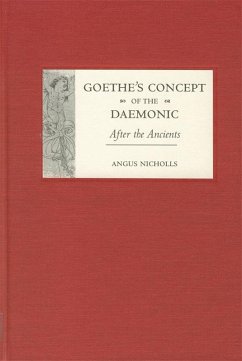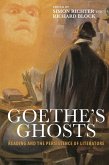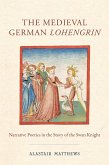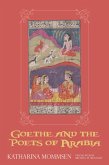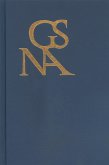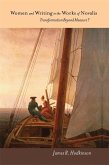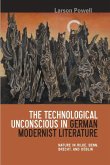The first book to examine Goethe's writings on the daemonic in relation to both Classical philosophy and German Idealism.
For Plato, the daemonic is a sensibility that brings individuals into contact with divine knowledge; Socrates was also inspired by a "divine voice" known as his "daimonion." Goethe was introduced to this ancient concept by Hamannand Herder, who associated it with the aesthetic category of genius. This book shows how the young Goethe depicted the idea of daemonic genius in works of the Storm and Stress period, before exploring the daemonic in a series of later poetic and autobiographical works. Reading Goethe's works on the daemonic through theorists such as Lukács, Benjamin, Gadamer, Adorno, and Blumenberg, Nicholls contends that they contain arguments concerning reason, nature, and subjectivity that are central to both European Romanticism and the Enlightenment.
Angus Nicholls is Claussen-Simon Foundation Research Lecturer in German and Comparative Literature at the Centre for Anglo-German Cultural Relations in the Department of German, Queen Mary, University of London.
For Plato, the daemonic is a sensibility that brings individuals into contact with divine knowledge; Socrates was also inspired by a "divine voice" known as his "daimonion." Goethe was introduced to this ancient concept by Hamannand Herder, who associated it with the aesthetic category of genius. This book shows how the young Goethe depicted the idea of daemonic genius in works of the Storm and Stress period, before exploring the daemonic in a series of later poetic and autobiographical works. Reading Goethe's works on the daemonic through theorists such as Lukács, Benjamin, Gadamer, Adorno, and Blumenberg, Nicholls contends that they contain arguments concerning reason, nature, and subjectivity that are central to both European Romanticism and the Enlightenment.
Angus Nicholls is Claussen-Simon Foundation Research Lecturer in German and Comparative Literature at the Centre for Anglo-German Cultural Relations in the Department of German, Queen Mary, University of London.
Dieser Download kann aus rechtlichen Gründen nur mit Rechnungsadresse in A, D ausgeliefert werden.

